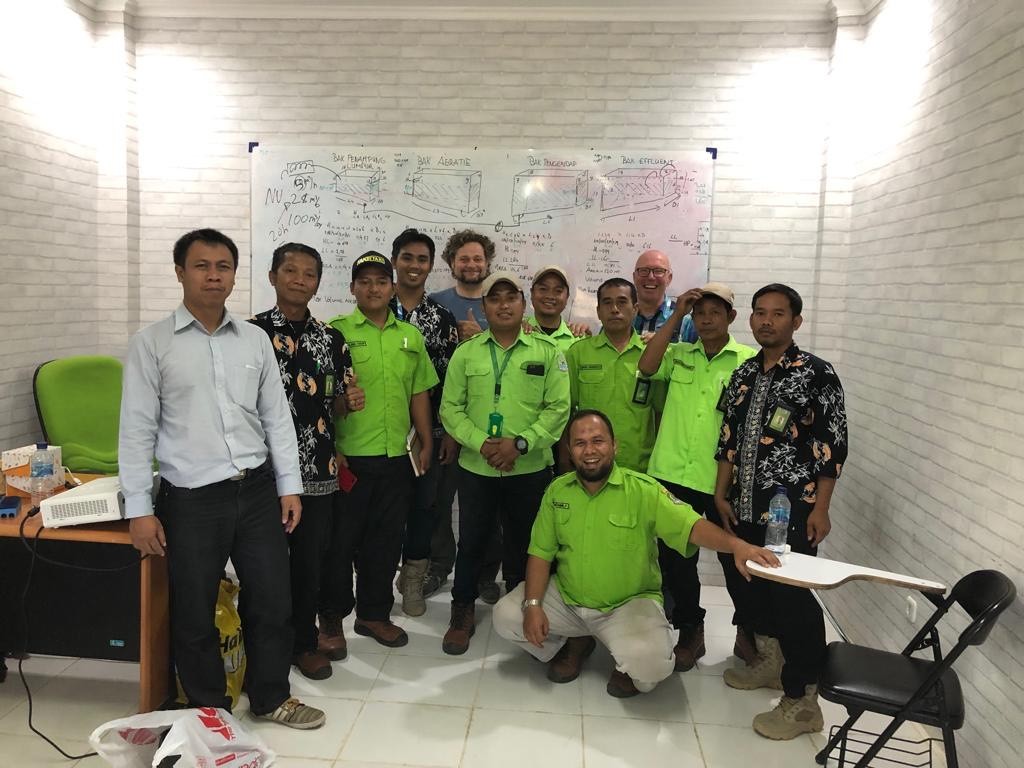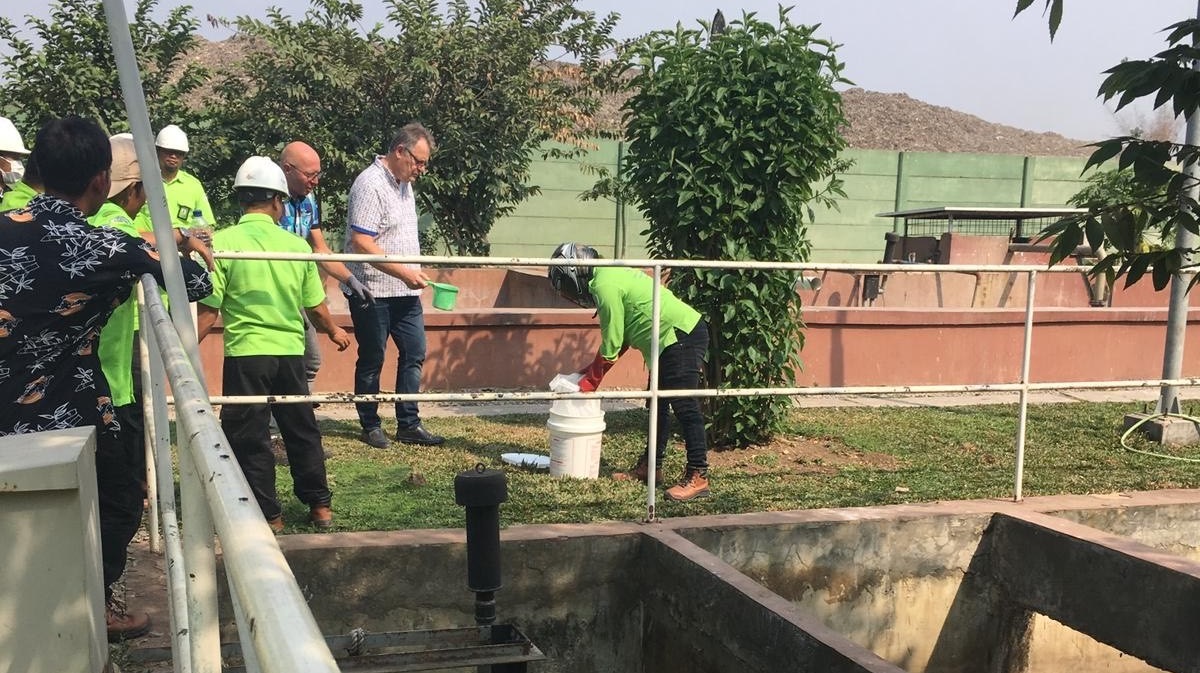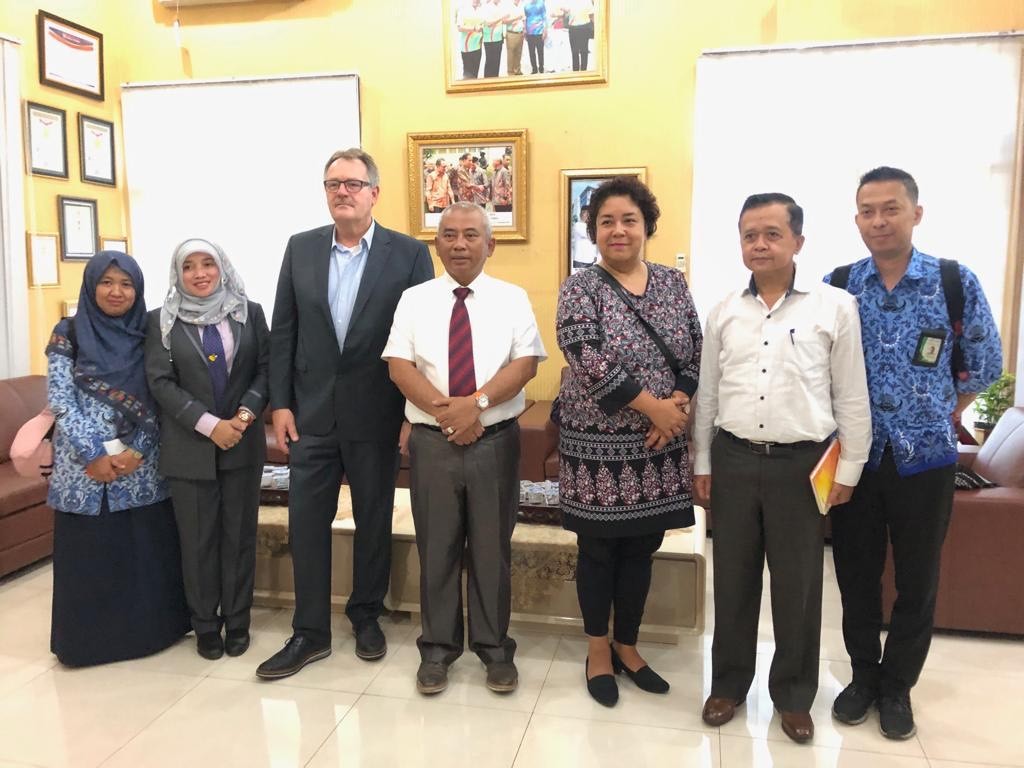World Waternet supports Bekasi City to improve faecal sludge management
18 December 2019Bekasi is a city in Western Java located on the eastern border of Jakarta. The population in 2017 is about 2.8 million people. The majority of the population of Bekasi is not connected to the sewage network. Most of the households on Bekasi have septic tanks, soak pits or use communal based systems and public toilets. Unfortunately, most of the septic tanks do not meet the Indonesian National standards. The wastewater flows back into the ecosystem by polluting the groundwater and the surrounding environment. This could cause a devastating impact upon human health because human waste could spread diseases and damage environment. Since 2018, World Waternet supports the Waste Water Technical Unit of Bekasi to combat these issues. This project is funded by the Asian Development Bank.
Regional Regulation is not the holy grail
UPTD PALD is the Waste Water Technical Unit of Bekasi responsible for managing the septage management system. In response to the sludge management issues, the Bekasi city government enacted the Regional Regulation in 2018 on the Domestic Wastewater Management. This regulation obliges the community members to build septic tanks and desludge the tanks regularly. UPTD PALD only has six faecal sludge trucks available for the entire service area, which is not enough to serve all households. There is a large number of private desludging operators active in Bekasi. The Regional Regulation compels private desludging operators to transfer the slugde to the Faecal Sludge Treatment Plant of UPTD PALD. But instead, many still dispose sludge to rivers.
Sanitation taxes to increase enforcement
Since 2018, World Waternet supports UPTD PALD improving the capacity of the Faecal Sludge Treatment Plant. Firstly, enforcement is needed to make sure that all sludge in the area is transported to the Plant to be treated properly, thus not damage environment and impose a threat to human health. World Waternet and Unicef are jointly investigating whether UPTD PALD can levy additional taxes to cover the costs of extra enforcement.
 Faecal Sludge Training at training centre
Faecal Sludge Training at training centre
Process improvements
This will increase the amount of sludge to be treated, so World Waternet is closely examining the current processes of the Plant and together with the staff of UPTD PALD implement further process improvements where possible. By building capacity of the staff and working on process optimization, World Waternet is training the trainers: staff of the Plant that can train staff of other plants in the area to help them improve their processes as well.
 Faecal Sludge Training at Faecal Sludge Treatment Plant
Faecal Sludge Training at Faecal Sludge Treatment Plant
Long-term targets and upscaling
Moreover, on policy level World Waternet is supporting UPTD PALD to work towards more strategic planning of their Faecal Sludge Management. This implies setting ambitions long-term targets and key performance indicators to help monitor and evaluate these targets. The coming months, World Waternet will hand over certificates to the trainer of trainers so UPTD PALD can easily improve all their Faecal Sludge Treatment Plants. In June 2020, a seminar will be organised to showcase the best practices of the project with other municipalities that hopefully get inspired by working method and allow for upscaling!
 Meeting with Mayor of Bekasi
Meeting with Mayor of Bekasi